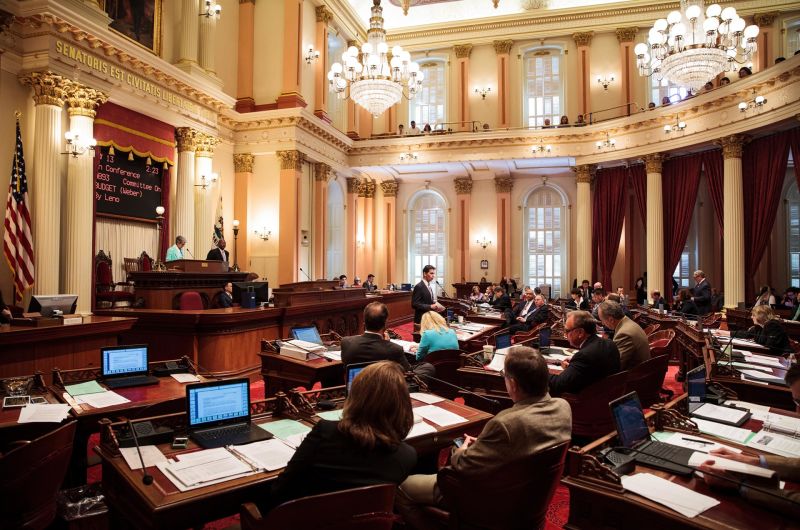Democrats hold a two-thirds majority in both the Senate and Assembly. The programs are expected to cost millions of dollars.
Still, Assembly Speaker Anthony Rendon says lawmakers have an obligation to protect the interests of vulnerable Californians.
"It is increasingly apparent that those interests will not be a concern for the next president -- for the bullies, bigots and billionaires he has chosen for his Cabinet -- or for the majority in Congress that is already salivating at the prospect of ending Medicare," Rendon said.
Gov. Jerry Brown has said he agrees the state needs to protect its interests, but wants to see what Trump does before taking action. And that’s assuming the state takes any action at all. In fact, UC Davis law professor Carlton Larson says a U.S. Supreme Court decision would allow California officials to take the route of passive resistance to congressional actions they disagree with.
“If California officials simply want to sit back and not lift a finger with respect to federal immigration laws or any other federal law, they don’t have to," Larson said. "The federal government can’t force state officers to enforce federal law. So that’s a fairly significant power.”
Larson notes California can’t actively obstruct federal law, and if the federal government uses its own officers to enforce the law, there’s not much the state can do about it.
And there may not be much Republicans in the Legislature can do to block Democrats' actions. But they can show their displeasure. Rather than support the re-election of Assembly Speaker Rendon, as they did when he was first elected, Assembly Republicans chose instead to back Minority Leader Chad Mayes for the post.
Mayes says he doesn’t agree with the combative tone state Democrats have taken toward Trump.
“I’ve been disappointed over the last couple of weeks to see some of the leaders of their party say some pretty abrasive things," he said. "And the fact remains President-elect Trump is going to be the president and we’re going to have to work with him.”
Senate Minority Leader Jean Fuller, who was a Trump delegate at this year's Republican National Convention, says the state party could benefit from the GOP-controlled federal government
"Because, nationally, the Republicans will be setting the agenda and we work very closely with them, we think we’ll be solving problems as the new agenda begins to surface and policy takes a different tack in the United States," she said.
Fuller, who represents Bakersfield, said her district could benefit from Trump's promise to keep more jobs in the country.
